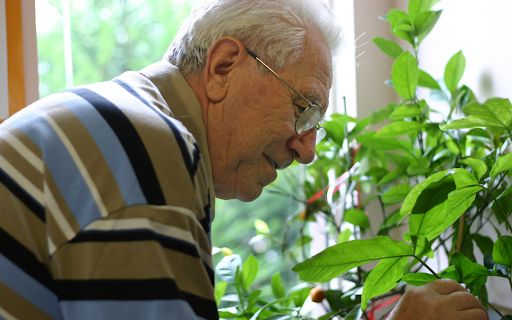As you or your loved one ages, it’s a good idea to research and implement different strategies to make this season of life as fulfilling and joyful as possible. For example, one of the leading causes of mental and physical health decline in seniors is isolation. To combat loneliness, create a plan for transitioning or downsizing homes. Senior living communities help promote healthy aging by providing a safe environment, as well as fostering connection and mental stimulation. To learn more, here are eight specific benefits you can expect from a senior living community.
1. Structured Social Time
Humans are pack animals at heart. Nurturing connections with others is key to living a happy life. As you age and mobility decreases, it’s easy to fall into the habit of only seeing a select, small group of people. This not only increases your risk of depression but limits your social interactions.
When you live in a senior community, there’s scheduled social programming to keep you in touch with others. (Plus, help you create meaningful new friendships).
2. Stay Active
Exercise is a well-touted healthy aging suggestion. However, as you get older, it can be more and more difficult to get the right amount of movement into your day. Senior living communities provide fitness classes, guided meditation, water aerobics and more. All of these exercise-based activities keep you or your loved one in the best possible shape. What’s more, classes are led by expert instructors who understand physical limitations and ensure safe practices.
3. Continue to Learn
Senior living communities provide residents with opportunities to advance old hobbies or learn new skills via recreational programming. Whether it’s a guest lecturer or a felting class, the combination of social interaction and skill-building is vital for mental health. In comparison, when living alone, you may feel bored and listless but not branch out and explore new hobbies.
In a senior community, there are endless options throughout the day, just outside your door!
4. Volunteer or Work Part-Time
Although you may no longer have a financial need, there’s no reason not to explore part-time or volunteer work (if physically able). Especially for those unsure of what to do in retirement, a part-time job can create a sense of purpose and help you shift into this new phase of life.
Senior living communities provide individuals with local opportunities, no matter the cause or organization you’re passionate about. The staff at most communities are well connected within their respective town and can help find appropriate positions for retired residents. What’s more, recent research and reports show that businesses can benefit from older individuals serving in advisory, part-time/flexible or mentorship roles.
5. Eliminate Meal Stress
Cooking can become stressful and more difficult as you age. Especially for those who live alone, preparing meals for one is ironically more challenging. Portion sizes at the grocery store trend towards larger rather than smaller. And recipes are usually for several people.
Dining services at a senior living community eliminates this problem. There, you’ll have access to all-day dining, a variety of cuisines and classically-trained chefs. Not to mention, meals are specifically prepared to promote healthy aging and meet proper nutritional needs.
Best of all, you don’t have to worry about excess food waste or the stress of making (and cleaning up after) your own meals.
6. Access to Transportation
As you age, driving becomes riskier (due to vision impairment, cognitive decline and other issues). Moreover, bone density begins to decline after fifty, which makes collision-related injuries ever more dangerous.
When you live in a senior living community, you have access to convenient, secure transportation. This allows you or your loved one to attend social activities, run errands or go to faith services without the added stress of being behind the wheel. Additionally, access to a safer way to travel allows you to maintain more of your independence.
7. Transfer of Caretaker Responsibility
When the responsibility of caretaking is placed with a family member (children, partners, siblings, grandchildren, etc.), it’s another added level of stress. This can severely strain relationships and happiness for everyone involved. But when you transfer caretaking responsibilities to the professional staff at a senior living community, you can focus on spending quality time together.
Friendly, expertly-trained staff will ensure that every need is met, that you or your loved one receive the proper care and that every change in the aging process is documented and addressed. You’ll also have peace of mind knowing someone is always available, 24/7.
8. Reduce Overall Risk in the Aging Process
Transitioning to a senior living community reduces the overall risks in all aspects of life. The oversight of a kind staff means no injury goes unnoticed. Access to different classes and gatherings allows residents to flex mental and physical muscles. Being around other people eliminates isolation and loneliness.
Whether you’re looking for yourself or an older loved one, keep these benefits in mind when researching options. Senior living communities holistically approach the aging process and address every facet of life, from diet to socializing to security. Healthy aging is possible when you focus on care, community and connection.
Call us today to learn more about assisted living and memory care at your nearest Vineyard community.

